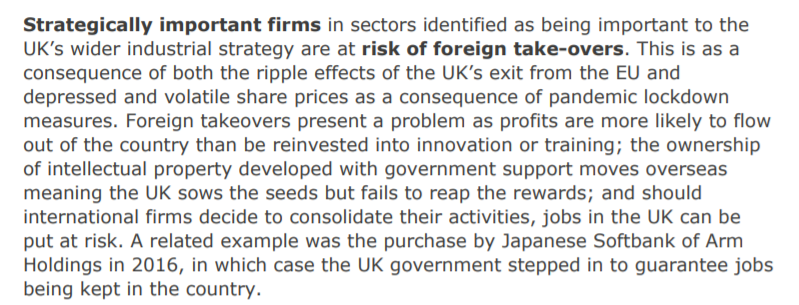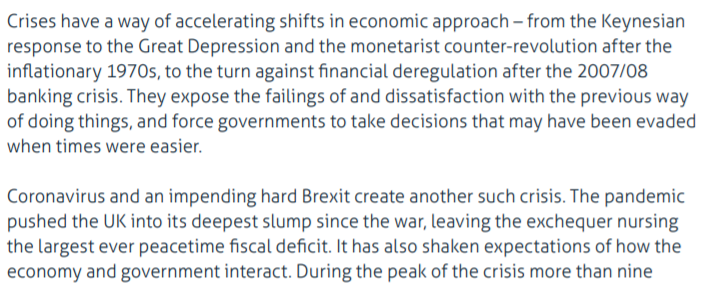
Here @GeorgeDibb and colleagues have dived a little deeper into a topic I touched on in April: equity bailouts for the covid-wrecked: instituteforgovernment.org.uk/sites/default/…
But - as with my piece, you may say - the devilish details are still to be all filled in 1/
But - as with my piece, you may say - the devilish details are still to be all filled in 1/
https://twitter.com/GeorgeDibb/status/1338762739808948224
No self-respecting HMT official will hear of a broad plan to do this without muttering the word "Lemons", and asking "um, at what price?"
If there is a £1m loan outstanding to the bakery, how much equity does that get you? All of it? Half of it? 2/
If there is a £1m loan outstanding to the bakery, how much equity does that get you? All of it? Half of it? 2/
... because if the bakery is a good commercial prospect, a private investor will get it. If not, the state picks it up. Result: the state gets a portfolio of rubbish companies
And note how many different kinds of magic IPPR want the equity to perform: 3/
And note how many different kinds of magic IPPR want the equity to perform: 3/

Make money for the investor (the state)
Also, tackle longstanding issues like "low investment in the UK"
But don't run it narrowly for shareholders only (um, the state again)
But DO follow all the nice corporate governance rules 4/
Also, tackle longstanding issues like "low investment in the UK"
But don't run it narrowly for shareholders only (um, the state again)
But DO follow all the nice corporate governance rules 4/
Oh - and pursue an anti-foreign-takeover policy while you are at it. Which will NOT enhance the value of the company 5/ 

... which will provoke a hollow laugh from businesspeople reading the next bit about "avoiding political influence" - what exactly is that shopping list about then? 7/ 

this para encapsulates the difficulty of the task. Don't support firms that are too indebted (aren't they the ones that need it, though?) or that have not taken remedial action (but what if that = scrapping "long-term growth, retaining jobs, staff training and upskilling") 8/ 

Bottom line: this is a valuable read from @GeorgeDibb et al. Here is the link again. ippr.org/files/2020-12/…
But for me it reiterates a message that should be written in neon all over Whitehall: INVESTMENT IS HARD. You are being sold a pup. Read about the lemons! /ends
But for me it reiterates a message that should be written in neon all over Whitehall: INVESTMENT IS HARD. You are being sold a pup. Read about the lemons! /ends
• • •
Missing some Tweet in this thread? You can try to
force a refresh











